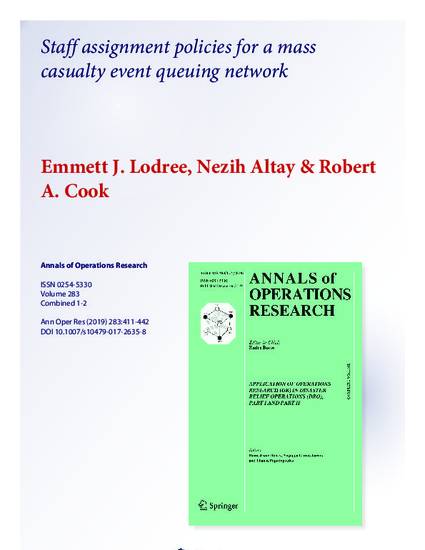
Article
Staff assignment policies for a mass casualty event queuing network
Annals of Operations Research
(2019)
Abstract
We study parallel queuing systems in which heterogeneous teams collaborate to
serve queues with three different prioritization levels in the context of a mass casualty event.
We assume that the health condition of casualties deteriorate as time passes and aim to
minimize total deprivation cost in the system. Servers (i.e. doctors and nurses) have random
arrival rates and they are assigned to a queue as soon as they arrive. While nurses and doctors
serve their dedicated queues, collaborative teams of doctors and nurses serve a third type of
customer, the patients in critical condition. We model this queueing network with flexible
resources as a discrete-time finite horizon stochastic dynamic programming problem and
develop heuristic policies for it. Our results indicate that the standard cμ rule is not an
optimal policy, and that the most effective heuristic policy found in our simulation study is
intuitive and has a simple structure: assign doctor/nurse teams to clear the critical patient
queue with a buffer of extra teams to anticipate future critical patients, and allocate the
remaining servers among the other two queues.
Disciplines
Publication Date
2019
DOI
https://doi.org/10.1007/s10479-017-2635-8
Citation Information
Emmett Lodree, Nezih Altay and Robert A Cook. "Staff assignment policies for a mass casualty event queuing network" Annals of Operations Research Vol. 283 Iss. 1-2 (2019) p. 411 - 442 Available at: http://works.bepress.com/nezih_altay/36/
